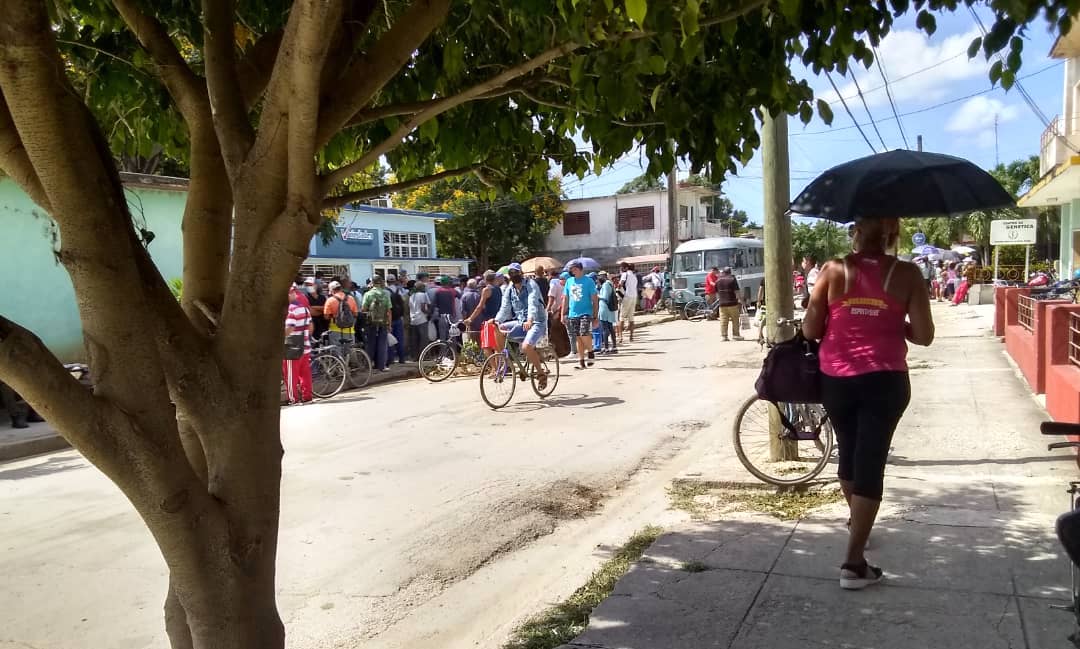"This month is proving the most critical, the most difficult to keep our heads above water. The rice from the store was short, there’s no oil or sugar on the street and, unfortunately, we have no electricity, with one blackout after another," said Yoandris, a health worker in Mayarí, Holguín, who lives with his elderly parents and also has a son to support.
"This is no way to live. I wish I had money to leave, even if it were for Haiti, for my mind’s sake. Living in Cuba is torture," he said.
According to Yunaisis, a single working mother, "this is a disaster. You get home from work and you're racking your brain about what to cook, and now you have no power to do so anyway. Every time I hear them talking on TV about emancipation and the achievements of women, it drives me up the wall …. who's going to feel emancipated with this slavery? Work is a complete ordeal," she said.
"A floor cleaning cloth costs 300 pesos, if you can find it, then you use it and it comes apart the first time, because it's of such poor quality. Pork is going for over 200 pesos, and now any mincemeat or sausage that someone sells on the street costs almost the same, because the MLC (Freely Convertible Currency) is going up, more and more, every day. If you don't have someone to send you remittances from abroad, you're nobody," she said, distraught.
May has been particularly hard for people, at least in Mayari, in eastern Holguin. All the rice indicated in the ration book was not completely distributed at the beginning of the month. So, after the first week passed people sarted trying to find it on the black market, which has no way to meet such high demand, because it depends on theft from the State, from the population itself, on the weighing, and on agricultural workers breaking the harvest rules and selling part of the harvest to the merchants.
Sugar is also "gone," says Rafael, a farmer from the rural neighborhood of Guayabo. "A few days ago they said they were going to bring five pounds to the store (distributed through the supply book), and people immediately started lining up. It was sad to see that, people lined up there waiting to see if they would finally bring it. "
"They were organized until the other day, and then nothing happened. It seems that they took it elsewhere. Cubans are like dogs waiting for a bone, which sometimes are not even thrown to them. This penury that we're enduring in this country, which should be rich, is outrageous No wonder all young people think about is leaving. They're no fools. You can't wish this on anyone, not even your worst enemy," he concluded.
The agony of Mayarians and of all Cubans is exacerbated by the protracted daily blackouts, lasting for at least eight consecutive hours, which further affect people's quality of life and their productivity at work. The problem is especially serious in this region of the country, where more than 90% of households use only electricity to cook, as there is no gas service.
The worsening of the food shortages, including rationed groceries; dependence on the dollar and the MLC to acquire basic necessities, and the prolonged blackouts due to the systematic electricity generation crisis, mark yet another chapter, or a more acute one, in the general breakdown of the state-planned system imposed by the Communist Party of Cuba, which the Government of Díaz Canel, against all logic, intends to maintain.
